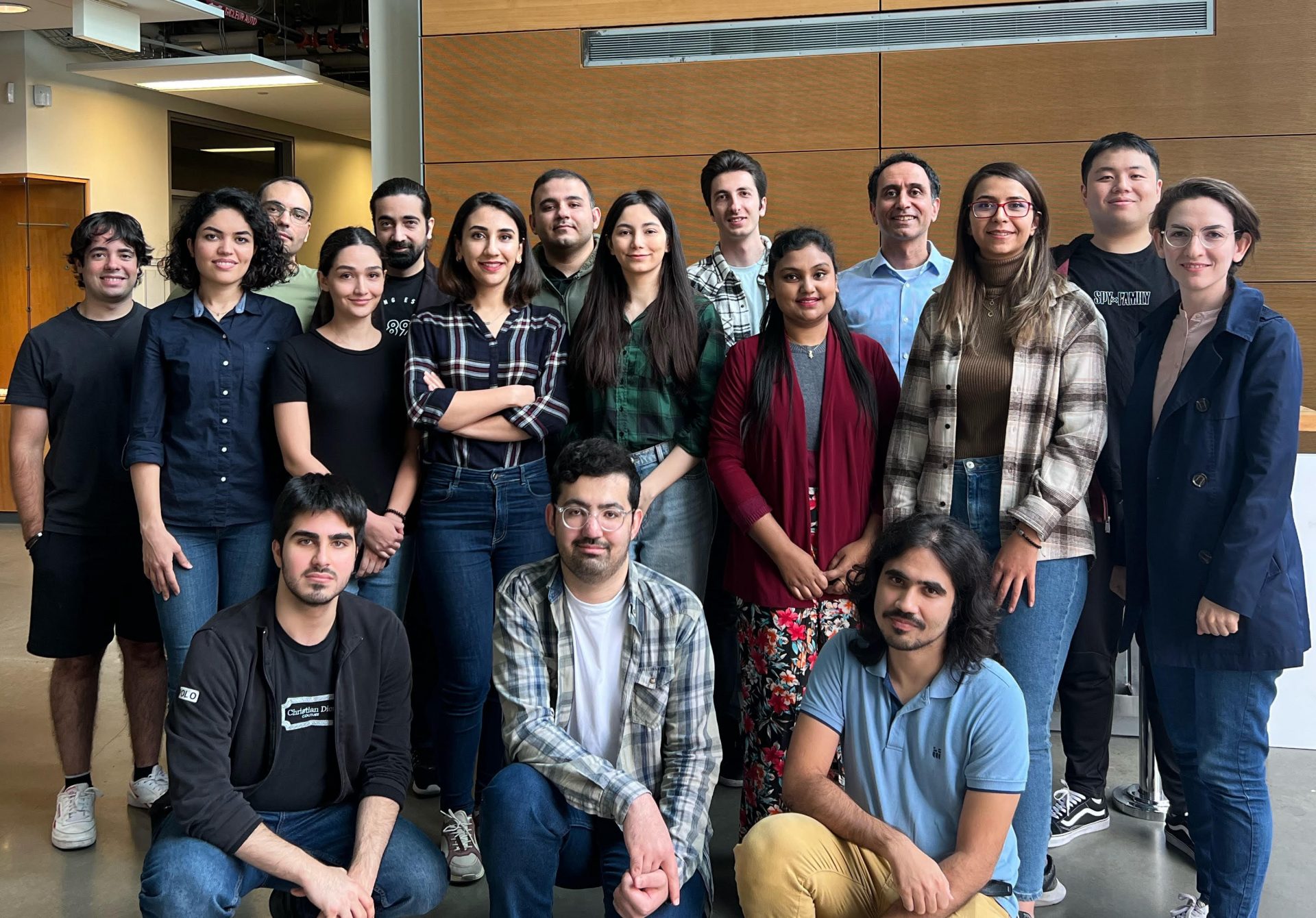Dr. Hassan Rivaz is currently accepting applications for a PhD student at the intersection of ultrasound imaging and machine learning starting Sept. 2023. The project is in collaboration with Dr. Jonathan Afilalo.
Minimum required qualifications
- Masters in ECE, CS or BME
- Background in one of these fields:
Deep learning, computer vision, machine learning, ultrasound imaging
- Good writing and communication skills
Submission process:
Send curriculum vitae to Drs. Rivaz (hrivaz[at sign]gmail.com) and Afilalo (jonathan.afilalo[at sign]mcgill.ca)
About IMPACT (Image Processing And Characterization of Tissue) lab
The fellow will be based at the IMPACT (Image Processing And Characterization of Tissue) lab at Concordia University. The lab is equipped with an NVIDIA A100 server, Verasonics 256 and Alpinion E-CUBE R12 ultrasound machines with access to RF and channel data, a Supersonics Imagine ultrasound machine with access to RF data, and NDI Polaris cameras for 3D tracking of ultrasound. IMPACT lab is directed by H. Rivaz, a tenured Associate Professor at Concordia University, the Research Chair in Medical Image Analysis, Associate Editor of IEEE TMI and TUFFC, and a program committee (PC) member of MICCAI from 2017 to 2020 and 2022 to 2023. He was selected as a rising star in bio-imaging in Quebec by QBIN in 2022. He received his BSc from Sharif University of Technology, Master’s from UBC, and PhD from Johns Hopkins University, and a postdoctoral fellowship at MNI. His team has written several award-winning papers at the intersection of AI and ultrasound.
About Dr. Afilalo’s lab
Dr. Afilalo is a cardiologist at the McGill University Health Center and a tenured associate professor. He holds a graduate degree in epidemiology from McGill University and level III training in advanced cardiac imaging from Harvard University. He has authored international guidelines in the fields of echocardiography and cardiovascular magnetic resonance imaging. He led multi-national cohort studies and clinical trials in the fields of frailty and sarcopenia for older adults with cardiovascular disease, publishing in journals such as JAMA Cardiology and JACC. His team has developed deep learning software (coreslicer.com) for clinicians to automate measurements of frailty and body composition from CT, MRI, and U/S images. These contributions have been recognized by awards from the Royal College, Canadian Cardiovascular Society, and American College of Cardiology. He is founding director of Canada’s first fellowship program in Geriatric Cardiology.
Diversity Statement
Concordia University is committed to Employment Equity and encourages applications from women, Aboriginal Peoples, visible minorities, ethnic minorities, and persons with disabilities.
